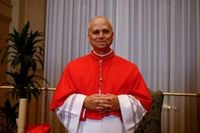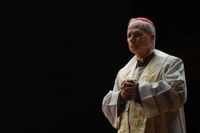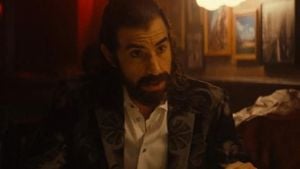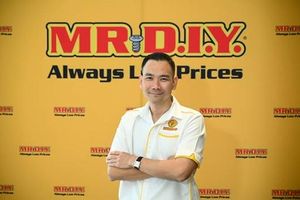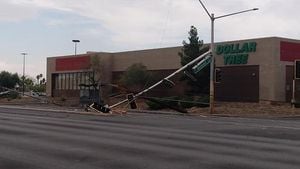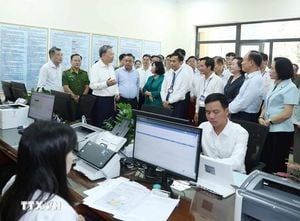On Thursday, May 8, 2025, Cardinal Robert Francis Prevost was elected as the 267th pope of the Catholic Church, adopting the name Pope Leo XIV. His election marks a significant milestone as he becomes the first pontiff from the United States, a decision that has stirred both excitement and controversy within the global Catholic community.
The conclave, which began on Wednesday, May 7, required a minimum of two-thirds of the 133 cardinal voters to select a new leader. Prevost emerged victorious after four rounds of voting, with at least 89 cardinals supporting him. The announcement of his election was met with the traditional "Habemus Papam" declaration from the Vatican, followed by white smoke rising from the Sistine Chapel, signaling the selection of a new pope.
Born on September 14, 1955, in Chicago, Illinois, Prevost has a rich history within the Church. He joined the Order of Saint Augustine in 1977 and was ordained a priest in 1982. His extensive missionary work in Peru during the 1980s and 1990s earned him the title of "pastor of two homelands" due to his dual citizenship in the U.S. and Peru. This background has endowed him with fluency in Spanish and a deep understanding of the Church's influence in Latin America.
In 2023, Prevost was appointed as the prefect of the Dicastery for Bishops by Pope Francis, a role that placed him at the center of the Church's governance and the appointment of bishops worldwide. His experience in this position has been viewed as a significant asset, showcasing his leadership capabilities and global perspective on Church matters.
Prevost's election has not been without challenges. The tradition of the Catholic Church has often leaned away from electing American popes, primarily due to political implications. Moreover, his past involvement in handling allegations of sexual abuse within the Church has raised eyebrows. Specifically, he faced accusations of inadequately managing an investigation into two priests accused of misconduct in Peru, a situation that has led to ongoing scrutiny from activists and Church insiders alike.
Despite these controversies, many analysts see Prevost as a progressive figure within the American Church, aligning with the more liberal values espoused by Pope Francis. His commitment to social justice, immigration issues, and a synodal Church model—where decisions are made collectively—reflect a continuation of the previous pope's vision. In his inaugural address, Prevost emphasized the importance of unity and dialogue, stating, "The evil will not prevail; we are all in God's hands. Let us move forward, as disciples of Christ. The world needs His light, and humanity needs Him. Help build bridges, with dialogue, to become one people in peace."
Prevost's tenure as bishop of Chiclayo, Peru, was marked by a focus on pastoral care and community engagement. He served in this capacity for nine years before his elevation to cardinal. His leadership style is characterized by a deep sense of humility and a commitment to being present with the people he serves, a sentiment he articulated in a previous interview: "The bishop is authentically called to be humble, to be close to the people he serves, to walk with them, to suffer with them, and to seek ways to live the message of the Gospel among his people."
The new pope's choice of the name Leo XIV is seen as a tribute to Pope Leo XIII, known for his advocacy for workers' rights and social justice during the late 19th century. This historical reference may signal a renewed focus on addressing modern issues such as economic inequality and the plight of workers in today's society.
In the wake of his election, the National Conference of Bishops of Brazil (CNBB) expressed optimism about Prevost's potential as a peacemaker and a compassionate leader. In a letter welcoming the new pope, the CNBB highlighted his ability to listen and engage with leaders and communities in crisis, suggesting that his papacy could bring much-needed healing to the Church and the world.
Prevost's election has also garnered attention from world leaders, including former U.S. President Donald Trump, who praised the decision on social media, calling it a "great honor for the country." However, Prevost's history of critiquing certain policies of the Trump administration raises questions about how his papacy will navigate the complex relationship between the Vatican and U.S. politics.
As the Catholic Church faces numerous challenges, including declining attendance in some regions and ongoing scandals related to abuse, Prevost's leadership will be closely watched. His ability to unify the Church, address pressing social issues, and maintain the integrity of its teachings will be critical in shaping the future of the Catholic faith.
Prevost's first public appearance as pope included a heartfelt greeting to the faithful gathered in St. Peter's Square, where he acknowledged his deep connection to Peru and the people he served during his missionary years. His commitment to fostering a Church that emphasizes compassion, justice, and solidarity with the marginalized will likely define his papacy as he seeks to guide the Catholic Church into a new era.
In a world increasingly marked by division and conflict, Pope Leo XIV's call for peace and dialogue resonates profoundly. As he embarks on this significant journey, the global Catholic community remains hopeful that his leadership will inspire a renewed commitment to the values of love, justice, and service that lie at the heart of the Christian faith.
